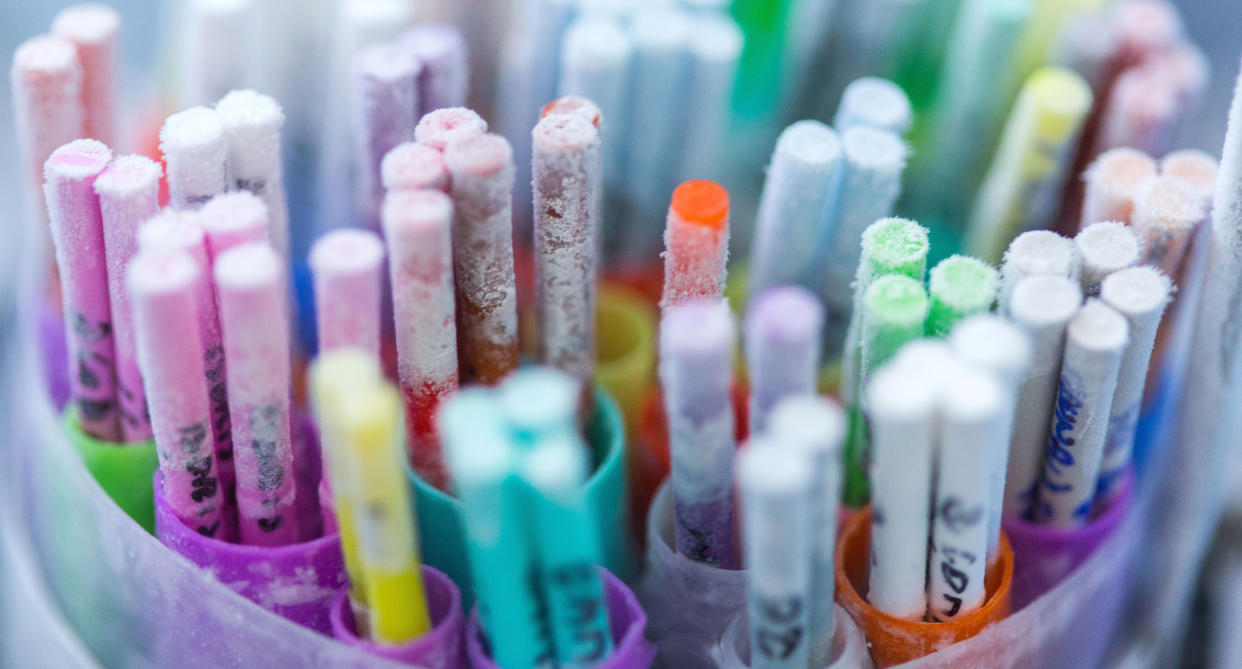This mom is donating her embryos to Ohio families who've lost theirs

The loss of thousands of eggs and embryos at a fertility clinic in Cleveland hit home for many women, including one who was inspired to donate to those affected.
Niki Schaefer knows the frustration and emotional experience that is in-vitro fertilization (IVF). So now that she’s had two children, the mom is donating her remaining frozen embryos to families who lost theirs in the Cleveland disaster, one of two fertility clinic disasters to occur this month.
Cleveland’s University Hospital Fertility Clinic incident on March 4 was the first, caused by an “unexpected temperature fluctuation” that affected the clinic’s tissue storage bank. It resulted in an estimated 2,000 damaged eggs and embryos, affecting around 700 patients in total.
A week after news broke about the incident, the Ohio resident posted a photo of a petri dish on Facebook, along with a very personal caption: “I am the mom of a girl that was a frozen embryo, transferred from this petri dish. I have 4 more frozen embryos that I’ve never been quite sure what to do with. The unfortunate events that compromised the frozen embryos at the University Hospital Fertility Center changed my mind.”
She continued, “My 4 frozen embryos are at a different facility where my doctor, friend and hero, Jimmy Goldfarb, used to work. I contacted Dr. Goldfarb (who now heads the UH Fertility Center) yesterday to tell him I would be donating them to families affected by this tragedy,” she wrote.
Schaefer ended the post by encouraging others in her shoes to do the same. “This is an opportunity to be real sisters and bring light to the darkness that these families, and those who work at the UH Fertility Center, are experiencing.”
Schaefer tells Yahoo Lifestyle that the accident, while tragic, felt like fate. “This incident made the decision easy. It felt meant to be,” she says in regard to donating her leftover embryos. “I am too connected to the people involved, patients and UH staff. I felt I had to do something to help. Without this event, though, deciding what to do with them was a very tough choice.”
The fact that her family was on board made the decision even easier to make. “My husband is completely supportive,” Schaefer says. And while her little ones don’t totally understand, “having them experience the love and positivity that comes from doing something nice for strangers has been a beautiful thing to watch,” she says with feeling. “I think it’s a great lesson about how good you can feel when you give to others.”
Schaefer began her IVF journey when she was diagnosed with polycystic ovary syndrome (PCOS) shortly after she got married in 2007 and was trying to get pregnant. “What that meant for me was that pregnancy was not going to happen the good old-fashioned way,” she explains. “In 2008, my husband and I started trying intrauterine insemination (IUI), but that never worked. So we began trying IVF in spring 2008.”
The second round was a success, and she got pregnant with her son Noah, who is now almost 9. “I started trying to get pregnant with Lane in 2010 and jumped straight to IVF.” After a few failed attempts, she got pregnant with a frozen embryo. “By that point, I was at the end of my rope, physically and mentally,” she shares. “Although compared to so many who struggle with infertility, what I went through was nothing.”
She adds, “IVF is incredibly taxing on your body, your mind, and your bank account. It is a very isolating and anxiety-provoking time in people’s lives.” But Schaefer says there is some good that comes out of it (aside from the kids). “The loneliness, helplessness, and darkness that people going through fertility treatments feel is a unique experience that creates an empathy that’s hard to appreciate if you haven’t been through it,” she says. “I think it bonds us like sisters.”
So of course she felt for those involved when she heard the news about the embryo damage at this nearby fertility clinic. “I was heartbroken for the people whose embryos and eggs were there, and for all of the staff at the fertility center who work so hard and care so much about their patients,” she says. “Everyone lost here in some way or another. The lost embryos and eggs were people’s hope of having the families that they dreamed of. It would be devastating to lose that after all you put into creating that hope for yourself.”
Patients aren’t the only ones coping with the loss. Schaefer’s former doctor, James Goldfarb, who is now the medical director of the affected clinic, is “heartbroken,” she says. “No one cares about their patients more than that man,” she adds. “This is his life’s work. It is incredibly stressful and upsetting.”
Since her announcement, many parents have reached out to her. “I have spoken to several [of those affected by the incident]. They are experiencing varying levels of sadness depending on what those frozen embryos meant to the family, although everyone feels a significant and understandable loss,” she explains. “But it would be different for me to lose my embryos than for someone who was still planning on trying to conceive more children. Most women feel worse for women who they perceive as worse off than them — so women who can try again have all said that they feel terrible for those who cannot, due to medical reasons.”
While some families are filing lawsuits against the hospital, the people Schaefer has spoken to “feel awful for the doctors too.”
Read more from Yahoo Lifestyle:
While traveling abroad, this woman needed an emergency hysterectomy
37 Swedish women are suing a fertility app for unwanted pregnancies
Follow us on Instagram, Facebook, and Twitter for nonstop inspiration delivered fresh to your feed, every day.

